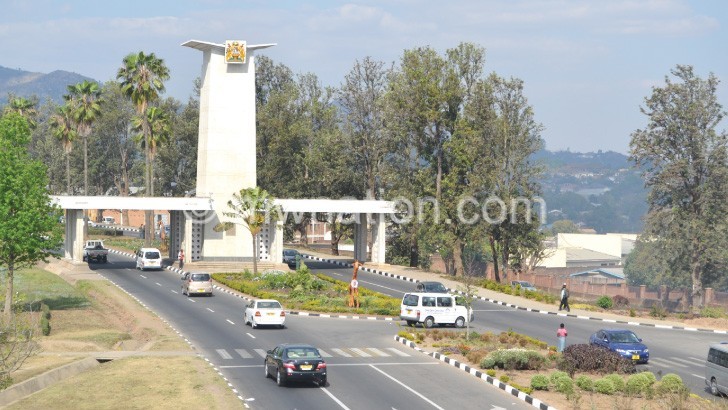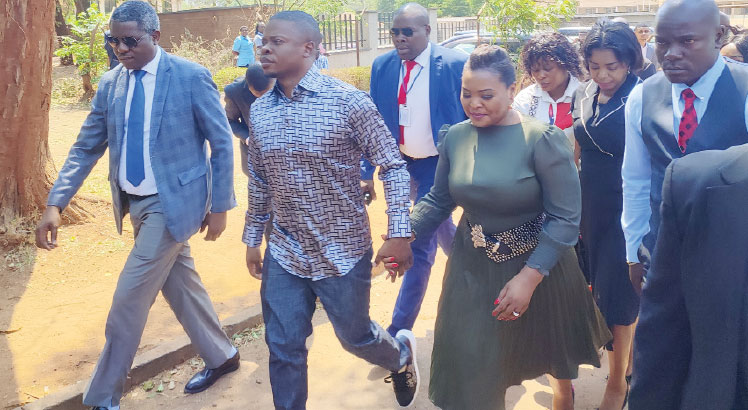59 years of dependence not worth celebrating—analysts
Four days before the country’s 59th independence anniversary, voices of discontent say it is meaningless to celebrate the day when the country is experiencing more political and economic servitude.
Government this week announced that it will spend K320 million to mark the day as analysts worry that the country cannot attach meaning to independence as it cannot manage a budget without external support while the little it earns through taxes ends up in the hands of corrupt people.

Political and economic pundits feel in the 59 years, Malawi has failed to implement policies and strategies due to corruption.
Public expenditure tracking and governance analyst Mavuto Bamusi notes that since independence, Malawi has only been good at establishing institutions, drafting development policy papers and poverty reduction strategies.
He said Malawi has also made progress in consolidating constitutional democracy, especially since after 1994, and strengthening diplomatic ties with traditional Western partners, neighbouring African states and nontraditional Eastern countries.
However, Bamusi notes that the country has had weak implementation of development policies and poverty reduction strategies.
“We have witnessed deteriorating infrastructure: dilapidating roads, dysfunctional railways, less impressive water transport, and little expansion on airports. We have seen a deteriorating economy with high imports backed by low exports; leading to dwindling forex reserves.
“We have seen rising public debts, and an appetite for over-spending on non- priority budgets such as presidential foreign trips and celebrations. There is rise in corruption, increase in abuse of public funds, and negative political interference resulting in hypocrisies on public sector reforms efforts.”
Bamusi also noted weak political governance through political parties and alliances that govern by patronage and cronyism, abuse of parastatals and infiltration of the civil service with political appointees.
“The citizenry has been systematically turned into passive elements subsisting at the mercy of politicians; citizens are disempowered and turned into beggars as they graduate from poverty to chronic poverty.
“Malawi has not invested in export development. We have prioritised imports and consumption. We have elected leaders that lack development vision except for Kamuzu Banda and Bingu wa Mutharika,” he said.
University of Malawi economist Dr Farai Chigaru in his paper, Demystifying Malawi’s (lack of) Economic Growth: Retrospect and Prospect, argues that development strategies have all been wrong.
He says such policies and strategies have long recommended products in which Malawi does not have a comparative advance (CA).
The CA is an economy’s ability to produce a particular good or service at a lower opportunity cost than its trading partners.
He argues: “Bilateral trade in Africa targets only 0.0005 percent of the total potential demand. Producing products for the African market targets 3 percent of the potential demand.
“Due to demand and supply principles, wrong target markets explain the current phenomena in Malawi in the following way: Low prices for our local products on the market; high rejection rates of our products and low forex earned.
“It is imperative to target the 97 percent of the market, however, we need to be viable on the international market to achieve this. Viability stems from being more efficient than other players in that product; hence producing products that we have a comparative advantage in.”
For Chigaru, more than 40 percent of the currently prioritised sectors if implemented will not spur economic growth as they are Comparative Advantage Denying sectors.
“Some of those sectors, however, have been identified as sectors with a latent comparative advantage, implying that Malawi has a potential in being efficient at producing them but not at the moment; hence for the medium-term,” he added.
Political pundit Wonderful Mkhutche argues that Malawi’s politics is still largely determined by partisan or personal motives, which is detrimental for democracy as well as the economy.
“We need rules and laws that can rise above certain partisan or personal ends. If not, we will leave the fate of this country in the hands of a few ignorant and greedy individuals. This will be catastrophic for our country.
“Patronage and tribal politics have consumed us for years. We choose leaders based on what we can personally gain from them or from tribal affiliation and this makes us end up with unqualified leaders for the job. We also have a challenge of passive citizenship.”
He said people know that leaders are not leading to expectations, but wait for an election to speak their mind.
Mkhutche urged them to correct recurring mistakes instead of waiting for an election.
Governance and human rights expert George Phiri wondered why the country’s leadership had the energy to organise Independence Day celebrations when the country is dependent on donors.
He said: “Our leader is globally trotting with a begging bowl for aid, the country is being run on debts, forex reserves are depleted and business people can transact as they would have preferred. Yet we are here and we want to celebrate independence?
Early this week, Minister of Local Government, Unity and Culture Richard Chimwendo Banda said the nation has to renew its resolve for unity as well as continue to be more patriotic.
“We do not have any other home but Malawi and no one else will build a Malawi that we want for us and our future generations, but ourselves,” he said.
Malawi Independence is observed on July 6 every year. The country gained independence from the United Kingdom in 1964 until such time it was under the colonial rule of the British.na





